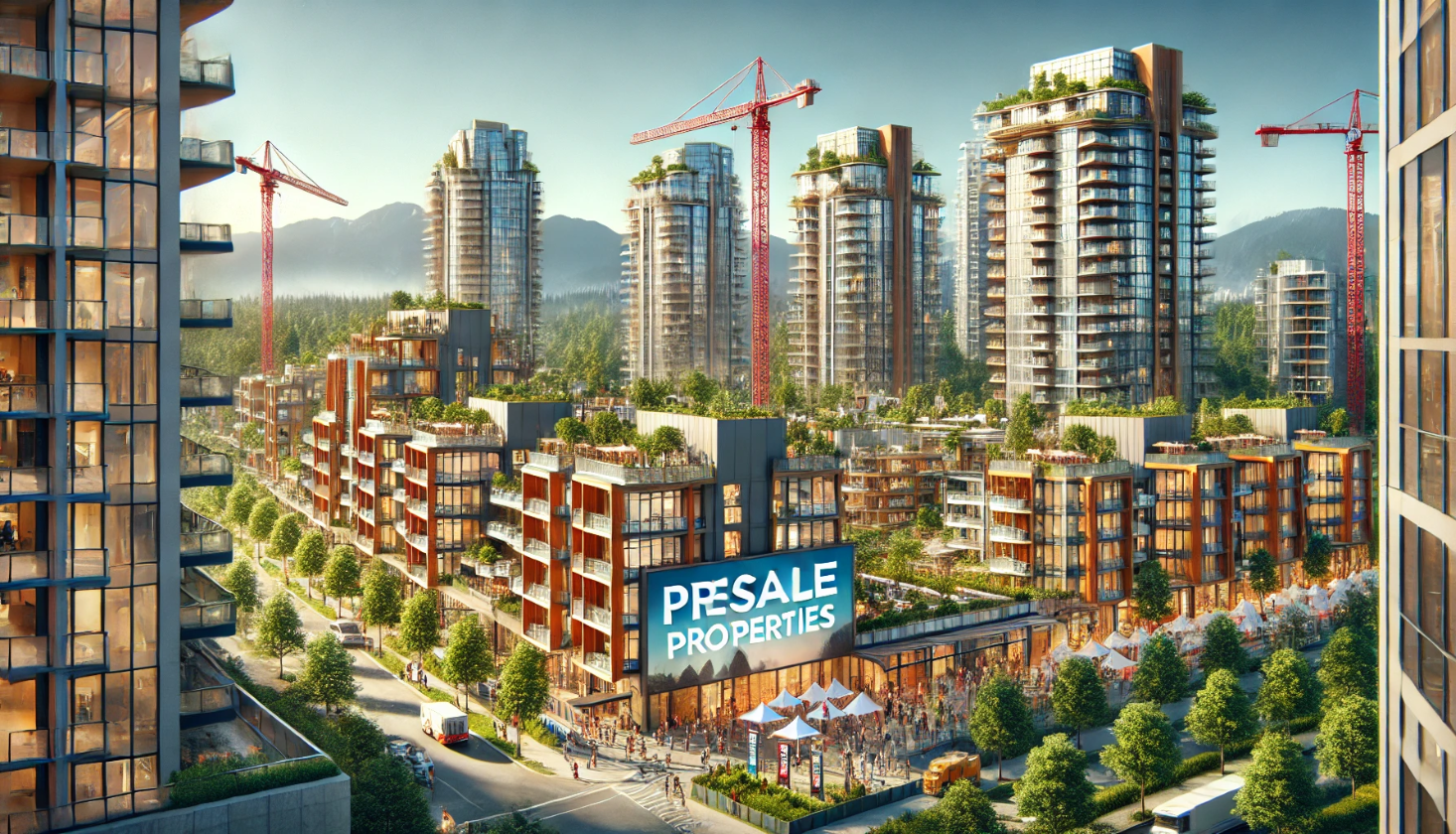
As of January 2025, the Vancouver real estate market continues to experience notable trends in the presale sector. According to the latest data from the rennie review, December 2024 marked the third consecutive month of year-over-year sales increases in the Vancouver Region.
This relatively strong finish contributed to total sales in 2024 surpassing those of 2023, indicating a positive trajectory as we enter 2025.
Several other indicators suggesting a cautiously optimistic outlook:
- Increased Presale Launches: The number of presale project launches in Metro Vancouver and the Fraser Valley has been on the rise. For instance, MLA Canada reported a total of 23 presale launches since the beginning of 2024, with three projects in January, six in February, and an anticipated 14 projects in March, totaling approximately 2,150 units.
- Market Stability: Reports from Cushman & Wakefield indicate that the Metro Vancouver market demonstrated stability with no sharp fluctuations in the fourth quarter of 2024. This stability is a positive sign for the presale sector, suggesting a balanced environment for both buyers and developers.
- Improved Absorption Rates: According to MLA Canada’s 2024 Intel report, there is an expectation of increased macroeconomic stability and pent-up demand leading to improved unit absorption, prices, and consumer sentiment toward the second half of 2024 and into 2025.
Looking ahead to 2025, the real estate sector in British Columbia is bracing for a year of uncertainty.
Factors such as political and fiscal changes, interest rate fluctuations, and evolving housing policies are expected to influence market dynamics.
The provincial government is anticipated to continue efforts to boost housing supply and tackle affordability issues, including initiatives like funding a portion of first-time home purchases and implementing a home-flipping tax.
What factors will influence the real estate sector, particularly presale?
- Provincial Initiatives to Boost Housing Supply:
– The government’s efforts to tackle housing shortages through densification projects and transit-oriented developments can positively impact the presale market. Increased focus on “missing middle” housing and incentives for municipalities to support multifamily developments can stimulate demand for presales in these segments.
- Support for First-Time Buyers:
– Policies aimed at reducing barriers for first-time buyers, such as subsidies or funding assistance, can increase their participation in the presale market. This demographic often prefers presales for the extended time frame they provide for financial planning.
- Improved Affordability Through Policy Measures:
– Measures such as the “home-flipping tax” may deter speculative investments in existing properties, channeling more end-users and investors toward presales, which are seen as less speculative.
- Population Growth and Immigration:
– British Columbia remains a preferred destination for immigrants, with many choosing urban centers like Vancouver. The steady influx of skilled workers and families creates ongoing demand for new housing projects, particularly presales.
- Interest Rate Stabilization:
– If interest rates begin to stabilize or decrease, as some forecasts suggest for mid-2025, the reduced borrowing costs could make presales more attractive, especially for those securing financing for a future purchase.
- Investor Appeal:
– Presales remain a popular choice for investors due to flexible payment structures and potential appreciation over time. In a balanced market with well-planned developments, this segment can drive presale demand.
- Improved Infrastructure and Urban Development:
– The development of infrastructure, such as new transit lines or commercial hubs, often leads to a surge in presale activity in adjacent areas. Buyers are drawn to the promise of enhanced connectivity and amenities.
- Market Shift to Wood Frame Developments:
– As observed in recent trends, the strong performance of wood frame presales indicates a growing preference for more affordable housing options. This segment offers a viable entry point for both first-time buyers and investors.
- Sustainability and Innovation in Housing:
– Developers offering sustainable, energy-efficient, and technologically advanced housing options often attract environmentally conscious buyers. Projects emphasizing green building practices can differentiate themselves and perform well in the presale market.
- Foreign Investment Trends:
– Favorable changes in foreign investment policies or a weakening Canadian dollar relative to other currencies could make presale properties more attractive to international buyers seeking long-term investments.
In summary, while the Vancouver presale market is adjusting to increased inventory and shifting demand patterns, it remains a critical component of the region’s real estate landscape. Stakeholders should stay informed about policy developments and market trends to navigate the anticipated uncertainties of 2025 effectively.
References:
https://www.cushmanwakefield.com/en/canada/insights/canada-marketbeats/vancouver-marketbeats
https://www.biv.com/news/real-estate/bc-real-estate-braces-for-year-of-uncertainty-10080867
